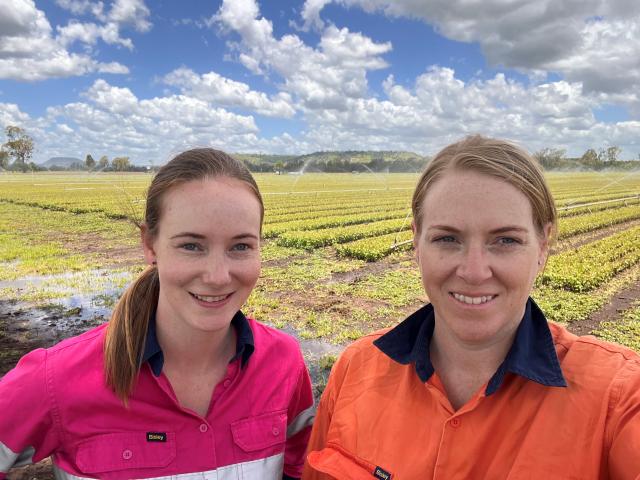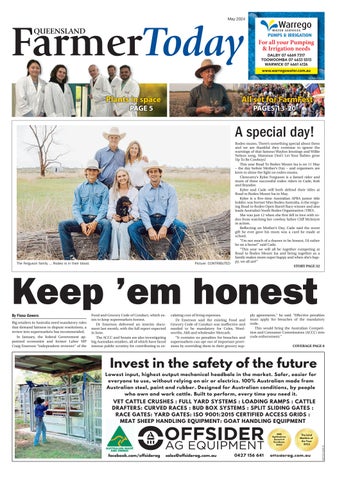Dynamic duo Alison Jensen and Karli Groves are proving that a career in agriculture is so much more than tractors and dirt.
The CQUniversity researchers – through innovative technologies – are challenging the agriculture world, working with growers in the Bundaberg region to implement unique problem-solving tech in an effort to secure a sustainable future in farming.
As part of the Hinkler AgTech Initative, they have done research trials, provided technical support and facilitated industry connections for farmers.
Dr Jensen said one of the initiative’s main aims was to facilitate the trialing of commercially-available AgTech products and services on farms and to promote adoption of AgTech in the Hinkler region.
“It’s been great to see some of the trials have led to the adoption of AgTech, where growers have really seen the value of a particular product or service,” she said.
“Especially now as horticulture is facing increased pressure to produce more with less . . . less cost, less land, less chemicals – the data that technology provides can help growers to make informed decisions and to improve production efficiency.”
Dr Groves said awareness of AgTech was heightening in the region.
And, she said, being able to build increased networking opportunities for growers had added value in working together to find the best solutions and practical uses of technology.
“We’re able to be a touch point for farmers to be able to access reliable information in the region,“ Dr Groves said.
The women said the ability to be “on the ground“ had helped growers gain the full benefit from their investment, as the adoption of new technology in the industry required various adjustments between both the grower and the tech.
“The role of people in agriculture will likely shift in the coming years, with demand for highly-skilled workers as a result,” Dr Groves said.
“There are so many aspects of agriculture to work in, more than just the hard labour roles.
“While people will always play a role in how a crop is grown, technology is empowering growers to make more informed decisions and to make the best of their own knowledge and growing experience.”
Both coming from significant, established careers and academic studies in agriculture, they have been part of the Institute for Future Farming Systems (IFFS) Precision Horticulture Team over the past two years.
Between them, they bring experience in plant breeding, plant pathology, practical industry outcomes, on-farm skills and system knowledge.
“Working so closely with industry has allowed us to develop a deeper understanding of complex and varied farming systems, which has really helped to shape the direction of the project and future work,” Dr Groves explained.
Dr Jensen’s research in plant pathology – in conjunction with the implementation of AgTech – is also seeing a role in improving disease management, where the systems and data can measure natural occurrences during crop development and helps in pinpointing when a disease outbreak may occur.
“Automated spore traps and environmental sensors have been some of the ways we’ve been able to monitor and predict disease outbreaks,” Dr Jensen explained.
“Careers in agriculture are sometimes stereotyped as difficult and dirty, but farming systems are so complex and interesting. Technology is changing the way crops are grown and the boundaries of what’s possible in research.
“It’s a great industry to be a part of and it’s exciting to be part of this transition in farming.”









